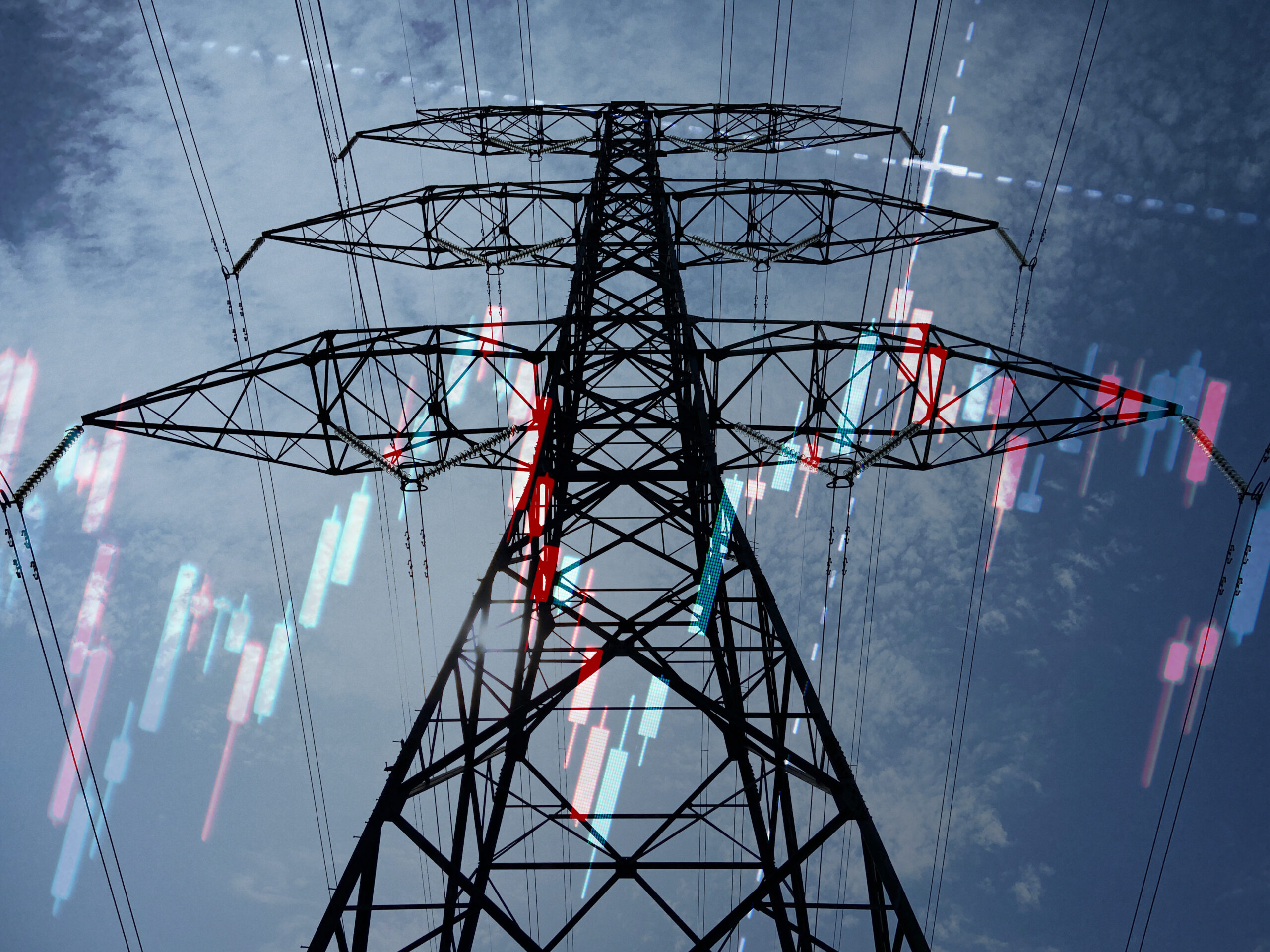In the dynamic landscape of the energy market, particularly in deregulated markets, energy retailers play an important role in providing energy consumers with choices while economically delivering energy through optimized operations. Between residential investor-owned utilities (IOUs), cooperatives, municipal utilities, and other models, utility companies vary in structure and function. Depending on the region one or more organizations may generate energy, maintain poles and wires, and/or directly serve consumers. In deregulated markets, retailers sell energy to consumers while aligning pricing with energy market costs. Those energy market costs are increasingly dynamic where the time in which energy is used is increasingly important. For that reason, retailers are seizing upon the opportunity to engage consumers with demand response (DR) and distributed energy resource (DER) programs.
Defining an Energy Retailer
An energy retailer is an intermediary between wholesale electricity markets and end consumers in the energy industry. Unlike utility providers, such as generation and transmission (G&T) companies, energy retailers specialize in the retail/consumer side of the market. They undertake vital functions, including energy procurement and contracting, customer acquisition and management, billing and customer service, energy pricing and tariff structures, as well as demand response and load management programs. In deregulated markets, energy retailers play a key role in the energy market ecosystem, enhancing competition, offering customized energy solutions, and prioritizing customer satisfaction.
Benefits for Energy Markets & Customers
Energy retailers help foster a more dynamic and customer-centric energy market. They enhance customer engagement and satisfaction through tailored energy offerings, provide access to specialized expertise in energy market operations and regulations, expand market opportunities and revenue streams, and drive the integration of innovative technologies. By collaborating with energy retailers, utility companies can enhance their competitiveness, deliver a superior customer experience, and contribute to a more sustainable energy future.
Enhanced Customer Engagement and Satisfaction Through Tailored Energy Offerings
Energy retailers have the expertise to understand customer preferences and provide customized energy solutions. They offer flexible pricing options, innovative energy plans, and value-added services that cater to individual customer needs. By tailoring energy offerings to customer preferences, energy retailers enhance customer engagement and satisfaction. This personalized approach can foster stronger customer relationships, build loyalty, and increase customer retention.
Access to Specialized Expertise in Energy Market Operations and Regulations
Energy markets are complex and subject to evolving regulations. Energy retailers possess specialized knowledge and insights into energy market operations, pricing mechanisms, and regulatory frameworks. By partnering with energy retailers, utility companies gain access to this expertise. They can leverage the knowledge of energy retailers to navigate market complexities, comply with regulations, optimize operations, and stay ahead of industry trends. This access to specialized expertise empowers utility companies to make informed decisions, enhance operational efficiency, and adapt to changing market dynamics.
Expansion of Market Opportunities and Revenue Streams
Energy retailers play an important role in balancing supply and demand, which is increasingly a challenge. Instead of being confined to a specific utility territory, energy retailers can serve customers across broader energy service areas. This wider market reach can enable diversification risk and distribution of lessons learned across different market constructs. Energy retailers are competitive entities that seek to expand their customer base, increase market competitiveness, and diversify their revenue streams. This expansion drives business growth, improves financial performance, and enhances long-term sustainability.
Integration of Innovative Technologies and Energy Solutions
Energy retailers are at the forefront of adopting innovative technologies and energy solutions. They actively explore and implement cutting-edge advancements such as smart grids, demand response programs, and renewable energy integration. By partnering with energy retailers, utility companies can leverage these innovations to improve grid efficiency, promote sustainability, and offer value-added services to customers. This integration of innovative technologies enables utilities to stay ahead of the curve, drive energy transformation, and meet evolving customer expectations.
Future Trends and Opportunities
Utility providers can look forward to exciting prospects as energy retailers navigate the evolving energy landscape. By embracing future trends and collaborating closely, energy retailers and utilities can seize opportunities for growth, efficiency, and sustainability. Together, they can shape the future of the energy industry, deliver innovative energy solutions, and provide enhanced value to customers.
Integration of Distributed Energy Resources (DERs)
One significant trend is the expansion of distributed energy resources (DERs). The increasing adoption of solar panels, battery storage systems, and electric vehicles affords energy retailers the chance to play a crucial role in integrating and optimizing these DERs. Through advanced distributed energy resource management systems (DERMS), energy retailers enable utilities to effectively manage and aggregate these resources, enabling grid flexibility, optimizing energy flows, and offering innovative programs to customers.
Demand Response and Flexibility Programs
With an increasing focus on clean energy and grid resiliency, demand response and flexibility programs are also gaining traction. As clean energy and grid resiliency become paramount, energy retailers can collaborate with utility providers to develop demand response initiatives that incentivize customers to adjust their energy usage during peak demand periods. By leveraging DERMS and partnerships, utilities can create dynamic pricing programs and smart home solutions that empower customers to control their energy consumption while supporting grid stability.
Personalized Energy Services and Smart Home Integration
Leveraging smart home technologies, IoT devices such as thermostats, solar, energy storage, electric vehicles, grid-enabled water heaters, and personalized energy services present a tremendous opportunity for utilities to partner with energy retailers to offer real-time energy data, smart energy management systems, and personalized energy recommendations to customers. This collaboration provides a level of personalization that enhances customer engagement, increases energy efficiency, and paves the way for a more sustainable energy future.
Electric Vehicle (EV) Integration
The rapid growth of EV adoption presents opportunities for energy retailers and utilities to work together to develop EV-focused programs, expand charging infrastructure, and explore vehicle-to-grid (V2G) opportunities. This creates new revenue streams while enabling utility providers and retailers to support the transition to clean transportation, optimize energy use, and capitalize on electrification trends.
Data Analytics and Artificial Intelligence (AI)
Embracing data analytics and artificial intelligence (AI) is another promising avenue for energy retailers, which can benefit utilities. Utilities can gain valuable insights into customer behavior, energy consumption patterns, and market trends by leveraging data and AI technologies. This data-driven approach allows for refined offerings, personalized customer experiences, optimized energy management, and enhanced grid reliability through demand forecasting and anomaly detection capabilities.
What is an Energy Retailer Conclusion
As the energy landscape continues to evolve, energy retailers play an important role in the energy market ecosystem by connecting utility providers and end consumers with efficient and customer-centric energy solutions. By understanding the diverse organizational structures of utility companies, including generation and transmission entities, we gain insight into the vital function energy retailers serve in bridging the gap between these entities and the retail market. In this era of energy transition, let us seize the potential of energy retailing and forge strong partnerships that drive positive change in the energy industry.







